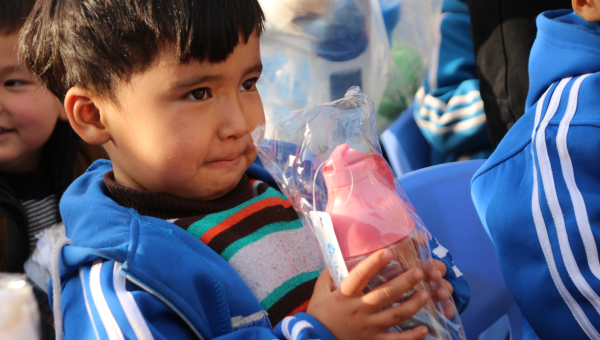SSCAF Mozambique - China Post-Disaster Restoration Initiative after the impact of Cyclone Idai
Summary
-
On 14 March 2019, Cyclone Idai, a Category 4 Tropical Hurricane, struck Mozambique, causing widespread destruction to houses, communities and livelihoods. Since then, UNDP has been working with the Government of China and the Government of Mozambique at both the national and local level, through South-South Cooperation, to enhance the recovery of affected populations in Sofala Province, Mozambique. The project focuses on the rehabilitation of community infrastructure, including 8 schools and 3 markets, as well as the construction of 17 new housing units for the most affected households.
-
The project worked collaboratively with the Cabinet of Reconstruction Post-Cyclones (GREPOC), the Ministry of Foreign Affairs and Cooperation, the National Disaster Management Institute (INGC), the Ministry of Education and Human Development and other key government entities in Mozambique. The project also received financial support from China’s South-South Cooperation Assistance Fund (SSCAF).

UNDP has been working with the Government of China and the Government of Mozambique through South-South Cooperation, to enhance the recovery of populations affected by Cyclone Idai in Sofala Province, Mozambique.
Background
-
According to a Socio-Economic Impact Assessment (SEIA) by the United Nations Development Programme (UNDP), 65% of the buildings in Beira City, Sofala Province were destroyed by Cyclone Idai and over 103 out of 235 schools were affected. The loss caused by Idai is estimated to be over USD$1.4 billion in total. In addition to infrastructure damage and the disruption to people’s livelihoods, the region’s pre-existing vulnerabilities, including high levels of poverty, social inequality, and frequent epidemics, has brought further challenges to post-disaster recovery efforts.
-
The project was initiated to provide resilient recovery support to the crisis-affected populations through new community infrastructure and improved access to services. To achieve this restoration, key community infrastructure (8 schools and 3 markets) and 17 of the most affected and vulnerable households are under rehabilitation following Build Back Better (BBB) standards.
-
Key community infrastructure including 8 schools and 3 markets in affected areas rehabilitated to BBB standards to restore the provision of education and socio-economic services
-
7,580 students and teachers received newly constructed climate-resilient schools for regular education
-
3,300 households were provided with newly constructed climate-resilient markets to receive basic economic services
-
17 of the most affected and vulnerable households, comprising of 100 beneficiaries, were assisted with new houses constructed to BBB standards through active involvement of local communities
Project Outcomes
-
Support the resilience and active recovery efforts of communities, help restore livelihoods, community infrastructure and basic socio-economic services
-
Effectively address communication and visibility of the project at local, national and international levels
GESI Component
-
The project was designed to benefit the most vulnerable people in affected communities, including children, people with disabilities, female-headed households and elderly people
-
The target beneficiaries of 17 households were among the most vulnerable people in the recommended community. Vulnerable families were classed as those that belong to two or more of the below characteristics:
-
Elderly headed household with no young family member to earn an income
-
Family with a person with disabilities (head of household or a member)
-
Female-headed households
-
Families with a large number of children (more than 5)
-
Families that received social security support from the government
-
Child-headed households
-
Heads of households with chronic diseases.
-
Families actively wanting to cooperate and able to provide the recommended contribution for reconstruction, were also assisted.
-
The estimated total beneficiary number of schools, markets and houses is 10,980 with 300 males, 384 females, 3,799 boys and 6,497 girls.

Key community infrastructure, including 8 schools and 3 markets in affected areas, have been rehabilitated to Build Back Better standards to restore the provision of education and socio-economic services

 Locations
Locations
